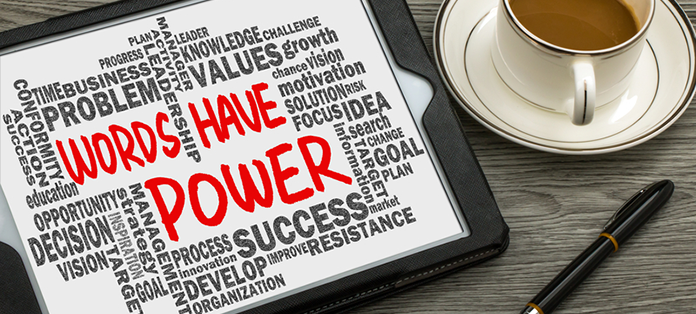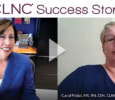When you communicate to attorneys, whether by speaking or writing, you can choose the response you want. That’s not a typo – I don’t mean your response, I mean the response from the attorney with whom you’re communicating. You can guide the response you’ll get by the words you choose.
For example, if you want to instantly get the attorney’s full attention, use signal words such as, “here’s how to,” “the opposing attorney will probably argue” or “this will almost certainly be an issue in the case.” Phrases like these alert the attorney that important information is about to follow.
Because your goal is to maintain an associative relationship with your attorney-clients, you will also want to use collegial phrases. For example saying, “let me share something I learned” is more collegial than “let me tell you about this.” Hearing these words, the attorney expects to benefit from, and possibly be enriched by what you are about to say, versus feeling they’re about to receive a lecture.
When explaining a medically complex situation, preface with, “this is how I would explain it to a jury” or “if I were explaining this to a jury, I would tell them….” This allows you to get down to the attorney’s level without insulting the attorney’s intelligence.
In addition to “sharing,” you can also use words that stimulate thought, inspire creativity and transform passivity into action. Think about famous persuaders such as Abraham Lincoln, Winston Churchill, John F. Kennedy and Martin Luther King. How did these orators persuade us to their way of thinking?
First of all, great persuaders sprinkle their speech liberally with “fat” words – freedom, love, success, judgment, loyalty, privilege, honor, generosity and together. Try putting any of those words in your CLNC® tote bag. You can’t see them or touch them, but they sure feel good when you hear them. “Fat” words are empty of content but full of meaning. Take the word pride. You can’t hold pride in your hands. You can’t see it, hear it or taste it, yet it has exquisite meaning. Tell someone “I’m proud of you” and notice their immediate response. Think about these phrases:
“I value your judgment.”
“It’s a privilege to be here.”
“Working together we can…”
When Lincoln said, “Truth is generally the best vindication against slander,” he used three fat words in a total of eight. Look for opportunities to use fat words to inspire or persuade friends, family and associates, then turn your efforts to your attorney-prospects and clients. Notice the difference between “thanks for your time” and “I’m honored you took the time.” Even though both phrases work; they impact differently.
Great persuaders also use presuppositions such as fortunately, unfortunately and luckily. Such words, at the start of a statement, presuppose the next part of the statement to be factual. “Fortunately, you have the stronger position in this case” “Unfortunately, this fact hurts the case.” Another form of presupposition includes such words as odd, aware, know and realize. They presuppose a situation while at the same time embedding a suggestion.
“Are you aware that the medical expert missed an important issue?”
When talking with a prospective attorney-client always say “when” instead of “if,” “When I take a case for you I’ll be sure to…” or “When we’re working together….” Be positive and assume they’re already in a relationship with you and your legal nurse consulting business.
Another powerful use of words is the use of “linking words,” such as and, but, while and even. Linking words suggest cause and effect. Great persuaders use linking words to link verifiable experience with suggestion, making their ideas more believable, more readily accepted.
Most of us use linking words in a negative context. The two most commonly used linking words are and and but. By merely changing your unconscious use of those two words to a more conscious application, you’ll gain persuasion power. When you tell a CLNC subcontractor, “I love your work, but I don’t like how you go into too much detail,” the negative message is what is retained. “I don’t like how you go into too much detail” is what comes through loud and clear. “I love your work” goes unnoticed. It gets cancelled by the linking word but. When you change your language to use the linking word and instead of but, you send a different message – one more appropriate, “I love your work and I prefer that next time you avoid so much detail.” Your communication is less damaging and it still sends a constructive message.
Even more effective is linking two verifiable bits of information to a suggestion. This powerful technique takes more thought but is very effective. Here’s an example – “Fuji apples are red” – that’s verifiable, you can see it. “They crunch when you bite them” that’s verifiable too – you can hear them crunch. “And they taste wonderful.” In sales terms this is called a “yes set.” The first two yeses invite the third. Here’s another example – “It’s a beautiful sunny day outside” – verifiable, “that’s a great photo of your family” – verifiable “and as a Certified Legal Nurse Consultant I can save you time and money on your medical-related cases.” Try this technique with attorney-prospects and see how many more clients you get.
These word power techniques can help you communicate more effectively for your Certified Legal Nurse Consultant business. Now that you’re aware of how persuasive you can be by incorporating fat words, presuppositions and selective linking words into your vocabulary, you’ll want to put them into action for your CLNC business. These word power techniques do require practice, so you’ll need to think about what you want to say in advance so that you cannot only practice, but also think up the most persuasive way of saying what you want well before you sit down to talk with an attorney-prospect. It also helps to evaluate an interview afterward and think of ways you would handle it differently next time. Practice using these techniques in your introductions and elevator speeches. You can even incorporate them into your introductory letters and promotional copy.
Practice word power today to reap improved results for your CLNC business.
Success Is Yours,
P.S. Comment and share the new word power techniques you will use in your next communication with an attorney-prospect or client.








